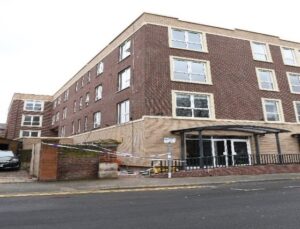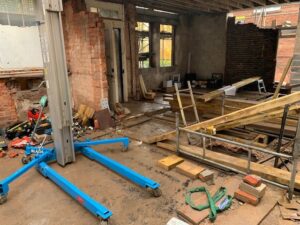- 60-day consultation on socio-economic analysis opinion also published today.
A detailed analysis on substances that could cause health risks to adults in Britain who get tattoos or permanent make up has been published.
Following a six-month public consultation last year on a restriction proposal for certain hazardous substances in tattoo and permanent make up inks, the Health and Safety Executive (HSE), in its role as the agency for UK REACH, has published its risk assessment opinion.
This is the first analysis of its kind to have been published under UK REACH, the standalone chemicals regime established after the UK left the EU.
Today’s published opinion on the restriction proposal was developed after considering responses from last year’s consultation. Additionally, in line with the legal requirements under the UK Registration, Evaluation, Authorisation and Restriction of Chemicals (REACH) Regulation, HSE also opened a 60-day public consultation on the draft socio-economic opinion for the same dossier. Any comments that will help HSE with this assessment should be submitted here.
Dr Richard Daniels, HSE’s Director of Chemicals Regulation Division, said: “Tattoo and permanent makeup inks could contain substances that are harmful to us. Some of these substances, for example, could trigger allergic reactions in the skin.
“We have listened carefully to the tattooing community. For example our proposals refer to two pigments which would, after careful assessment, be allowed to be used.
“While tattoo artists have measures to keep their work hygienic, there are currently no regulatory controls in Great Britain for substances in inks used for tattooing and permanent makeup.”
HSE also met stakeholders to gather information and discuss the proposal. The opinion was reviewed by a Challenge Panel made up of independent experts from the REACH Independent Scientific Expert Pool (RISEP).
Based on the responses received from the first public consultation, the options being taken forward reflect the concentration limits in the Classification, Labelling and Packaging Regulations for substances in scope due to their classification. These limits are intended to protect human health.
As the most common cause of ill health from tattooing and PMU procedures is infection which could be caused by inadequate sterilisation of ink, as well as poor hygiene in the studio or poor aftercare by the client, these options also allow more flexible use of substances which have preservative properties to help the sterility of inks. The concentrations included with the identified options are also broadly able to be measured using widely available methodology.
The proposed restriction also includes a derogation for 19 pigments including Pigment Blue 15:3 and Pigment Green 7. HSE’s review of the available hazard information for these 19 pigments did not identify evidence indicating they are unsafe if used in tattoo or permanent makeup ink.
Taking into account the widespread concern expressed by the tattooing community about the impacts to tattooing if Pigment Blue 15:3 and Pigment Green 7 are withdrawn from use, and the lack of identified alternatives which are technically effective and safe, it is deemed appropriate to permit the continued use of these 19 pigments.
HSE did however remove Pigment Red 83 (CAS: 72-48-0) and Solvent Violet 13 (CAS: 81-48-1) from this derogation because the review identified data indicating potential concerns for skin sensitisation for both substances.
Notes to editors:
- The Health and Safety Executive (HSE) is Britain’s national regulator for workplace health and safety. We prevent work-related death, injury and ill health through regulatory actions that range from influencing behaviours across whole industry sectors through to targeted interventions on individual businesses. These activities are supported by globally recognised scientific expertise. www.hse.gov.uk
- HSE is the Agency for UK REACH and therefore has responsibility for the majority of the regulatory functions under UK REACH. In the delivery of these functions, HSE is supported by and/or reportable to a number of other government organisations.
- HSE news releases are available at: http://press.hse.gov.uk.


